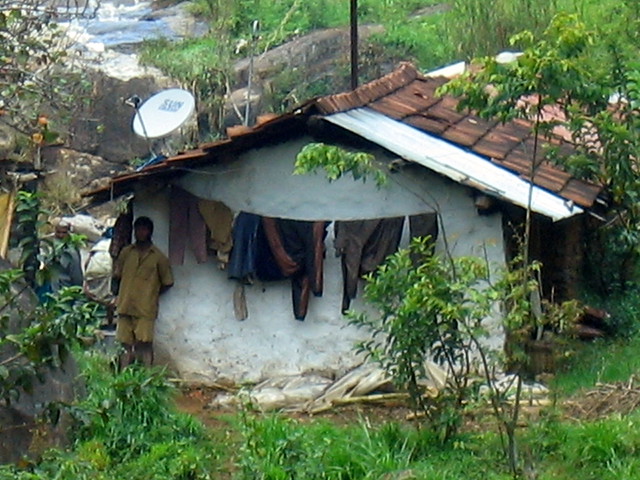
Photo: flickr.
Caption: "Everywhere you go, the poorest looking house/person -- TV!
Satellite dishes abound."
Writers Abhijit Banerjee and Esther Duflo, for Foreign Policy's May/June 2011 issue, challenge the FAO "fact" that nearly a billion people in the world go to bed hungry each night. It starts out....
But is it really true? Are there really more than a billion people going to bed hungry each night? Our research on this question has taken us to rural villages and teeming urban slums around the world, collecting data and speaking with poor people about what they eat and what else they buy, from Morocco to Kenya, Indonesia to India. We've also tapped into a wealth of insights from our academic colleagues. What we've found is that the story of hunger, and of poverty more broadly, is far more complex than any one statistic or grand theory; it is a world where those without enough to eat may save up to buy a TV instead, where more money doesn't necessarily translate into more food, and where making rice cheaper can sometimes even lead people to buy less rice.
But unfortunately, this is not always the world as the experts view it. All too many of them still promote sweeping, ideological solutions to problems that defy one-size-fits-all answers, arguing over foreign aid, for example, while the facts on the ground bear little resemblance to the fierce policy battles they wage.
To read the rest go here.